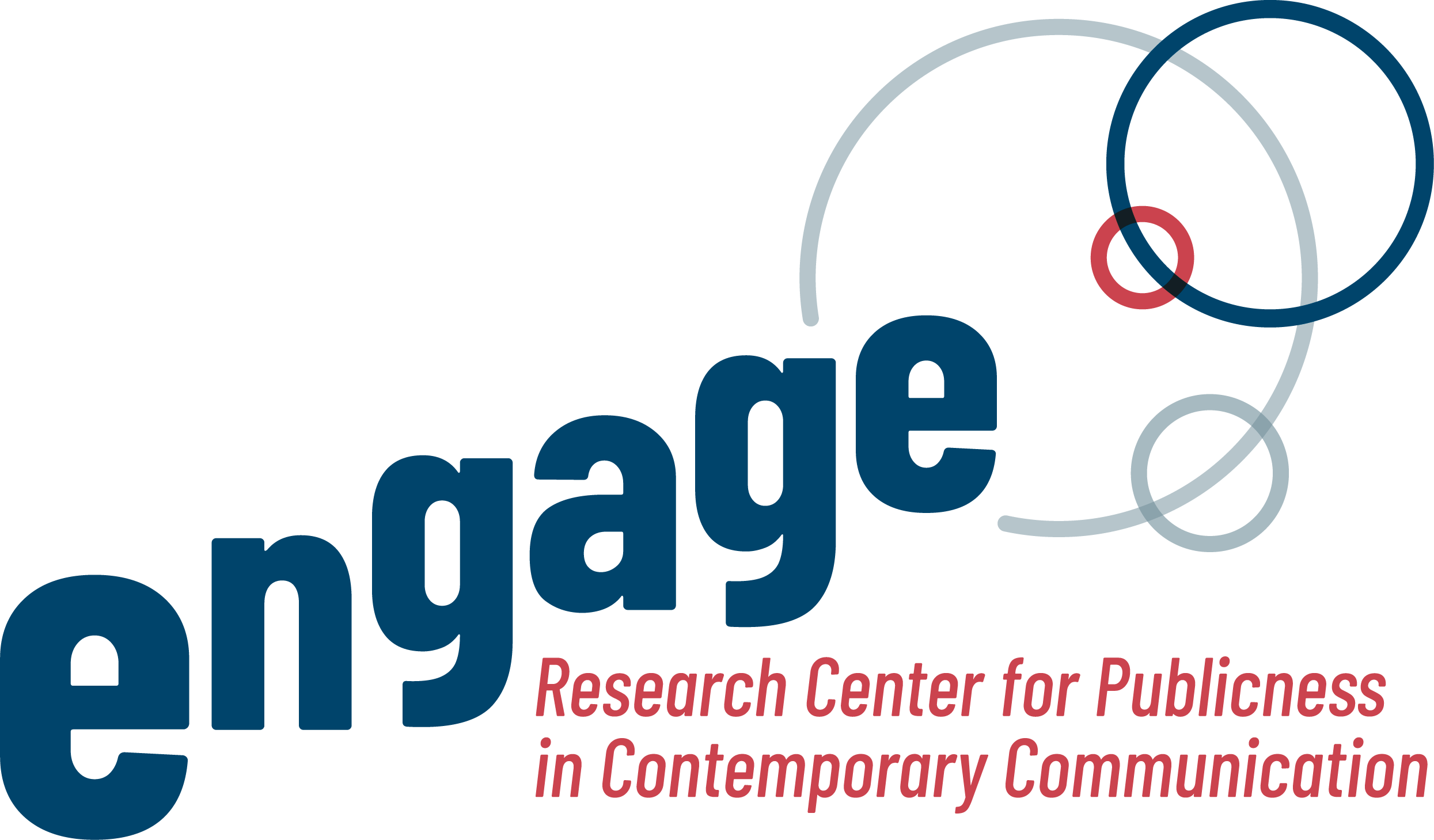Promoters of the overall project
Hanna Adoni (School of Communications, Interdisciplinary Center Herzliya, Israel), Hillel Nossek (School of Communications, Interdisciplinary Center Herzliya, Israel) and Kim C. Schrøder (Roskilde University, Denmark)
PReCoM promoter
PReCoM researchers
Geoffroy Patriarche, Marie Dufrasne, Robin Van Leeckwyck (as ULB intern)
Collaborator
Lola Cors, Harold De Dorlodot, Jonathan Dehoust, Savannah Dubois, Laura Garcia Gomez, Béatrice Gorremans, Alexis Le Hodey, Guillaume d’Oultremont, Güray Serbest, Delphine Van Hoolandt, Natalia Van Wien Abello (all 3rd year bachelor students in information and communication, political science or sociology and anthropology at Université Saint-Louis – Bruxelles, in academic year 2014-2015)
Project duration
2014 – 2017
Keywords
Audience research, news media, journalism, crossmedia use, citizenship, public sphere
Funding
PReCoM’s participation is self-funded.
Description
The project focuses on the cross-media use of news and its implications for social, cultural and political life in French-speaking Belgium. The main research question for this project is: What are the news media repertoires of Belgian users and how do these relate to citizenship in diverse societal spheres? The main objective of the research is to empirically uncover the complex relationships between news media repertoires and citizenship in different societal spheres – i.e. not just institutional politics – in Belgium.
The present study is part of a broader European comparative project entitled “Cross-media news repertoires as democratic resources” and coordinated by Hanna Adoni, Hillel Nossek and Kim C. Schrøder. This comparative project was launched as a spin-off of the EC-funded COST Action IS0906 “Transforming Audiences, Transforming Societies” (2010-2014). Thus the present study is aimed at providing data about French-speaking Belgium as an input to the comparative analysis that will be carried out in collaboration with 8 European countries.
The theoretical framework of the project is built upon different approaches to cross-media use (cf. for instance the concept of ‘media repertoires’) as well as approaches within audience research that theorize and analyze citizenship as deliberative and participatory processes sustained by or enabled through the media. Yet contemporary audience research develops a broad approach to citizenship that extends “the political” beyond the scope of rational deliberation and institutionalized participation. Thus the subjective components of human action (e.g. emotions, identities) and everyday life activities (e.g. small talk about TV shows) are also recognized as (potentially) political.
In order to map French-speaking Belgian’s cross-media news repertoires, the project uses Q methodology. In the present study, Q interviews are used to uncover the informants’ cross-media patterns of news consumption. The Q interviews are complemented by a short (face-to-face) questionnaire using likert-style questions. The questionnaire covers different aspects of citizenship as defined in the theoretical framework: it addresses the role of media in sustaining discussions and informing opinions, and will include questions concerning citizenship in the media (e.g. voicing opinions on radio, commenting online news), cultural (e.g. going to the theater), social (e.g. attending protests) and political (e.g. being a member of a political party) spheres. The 36 informants were recruited in order to reach a diversity in terms of gender, age, location and education.
The analysis of the Q interviews aimed at identifying and characterizing groups of users having similar patterns of cross-media news consumption. It combines qualitative interview materials and statistical operations (factor analysis). Four news media repertoires emerged out of the statistical analysis: the ‘traditionalist news viewers’, the ‘new generation quality news readers’, the ‘audiovisual and social media lovers’, and the ‘digital news omnivores’. As a second step the analysis aimed at finding relationships between cross-media news user profiles and patterns of citizenship in the social, cultural, political and media areas.
The overall pattern mostly reflects continuities in the evolution of the French-speaking Belgian media landscape, although some interesting changes are taking place at the intersection of legacy and new media forms.
Scientific publications
Van Leeckwyck, Robin ; Patriarche, Geoffroy ; Dufrasne, Marie (2017). Doing one’s shopping in the “supermarket of news”: News media repertoires in French-speaking Belgium. Participations: International Journal of Audience and Reception Studies – Vol. 14, no.2, (2017). http://www.participations.org/Volume%2014/Issue%202/contents.htm
Van Leeckwyck, Robin ; Patriarche, Geoffroy ; Dufrasne, Marie. Cross-media News Repertoires as Democratic Resources. Report for French-speaking Belgium. (2017). http://hdl.handle.net/2078.3/177996
Presentation
Van Leeckwyck, Robin, “Cross-media news repertoires as democratic resources in French-speaking Belgium”, Lunch-session of PReCoM, Université Saint-Louis – Bruxelles, 26 May 2016.
Societal valorization
Dans le cadre de la semaine des cours ouverts de février 2020, Geoffroy Patriarche a donné un cours-conférence sur « Cette news est-elle ‘fake’ ou pas ? Un éclairage des sciences de la communication » à destination des élèves de rhéto (Université Saint-Louis – Bruxelles, 25 février 2020).
